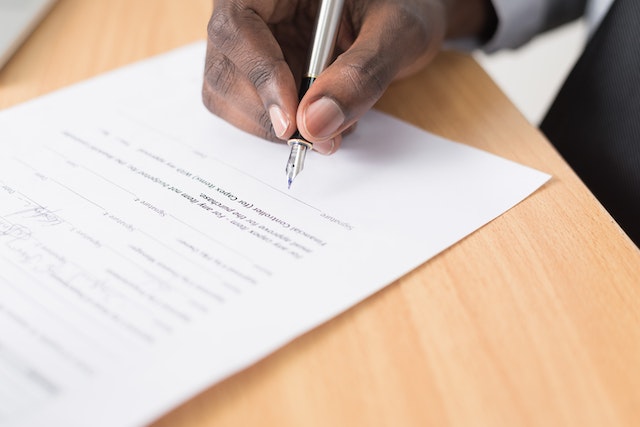Many people don’t know that you can cash a check made out to a deceased person in Texas prior to probate. The state has what’s called a “pay-on-death” provision, which allows for the cashing of checks made out to deceased persons. While this may seem like a simple process, there are actually a few things you need to know before cashing a check made out to a deceased person in Texas. In this blog post, we will explore the requirements for cashing such a check and provide some helpful tips.
How to cash a check made out to a deceased person in Texas
If you have a check made out to a deceased person in Texas, you may be able to cash it by following these steps:
1. Contact the bank or credit union that issued the check. They may be able to reissue the check to the estate of the deceased person.
2. If the check is from the Social Security Administration (SSA), you can endorse it and cash it at most banks and credit unions. The SSA will also reissue the check if you contact them.
3. If the check is from another government agency, you may need to get a court order to cash it.
4. You may be able to cash the check if it’s made out to both you and the deceased person, as long as you endorse it.
5. If none of these options work, you can try contacting the payer of the check to see if they will issue a new one made out to the estate of the deceased person.
The process for cashing a check made out to a deceased person in Texas
In Texas, the process for cashing a check made out to a deceased person is as follows:
1. The executor or administrator of the estate must present the check to the bank or financial institution where the deceased person had an account.
2. The bank or financial institution will then ask for proof of death, such as a death certificate, and proof that the executor or administrator is authorized to act on behalf of the estate.
3. Once all required documentation is provided, the bank or financial institution will issue a cashier’s check made out to the estate for the amount of the check.
4. The executor or administrator can then use this cashier’s check to pay any debts of the estate or distribute assets to beneficiaries according to the terms of the will or intestate law.
The requirements for cashing a check made out to a deceased person in Texas
In Texas, the requirements for cashing a check made out to a deceased person depend on the bank where the account is held. Some banks may require that the executor or administrator of the estate open a new account in order to cash the check. Other banks may allow the check to be cashed by someone who is named as a payee on the check.
To cash a check made out to a deceased person in Texas, you will need:
-A copy of the death certificate
-A copy of the will, if there is one
-The original check
-Identification for yourself
-Proof of your relationship to the deceased person (if you are not the executor or administrator of the estate)
Alternatives to cashing a check made out to a deceased person in Texas
If you have a check made out to a deceased person in Texas, you may be wondering if you can cash it. The answer depends on the bank and the state laws.
In Texas, there is no law that specifically addresses cashing checks made out to deceased persons. However, many banks have their own policies in place that do not allow for such transactions.
If you are looking to cash a check made out to a deceased person in Texas, your best bet is to contact the issuing bank directly and ask about their policy. You may also want to consult an attorney or financial advisor to discuss your options and ensure that you are taking the best course of action.
Can an executor cash a check made out to the deceased?
If the check is made out to the deceased, the executor cannot cash it. The executor would need to endorse the check by writing “Payable to the estate of [name of decedent]” on the back of the check, and then deposit it into the estate’s bank account.
Conclusion
In Texas, you can cash a check made out to a deceased person as long as you have the proper documentation and the correct relationship with the estate (e.g., executor or administrator). You’ll need to provide proof of death, such as a death certificate, and you may also need to provide identification for the deceased person. Once you have all of the required documentation, you can take the check to your bank or a check-cashing service and they will be able to process it for you.
Do you need an Experienced Probate Attorney to help?
It can be difficult to know what to do when a loved one dies. One of the first things you may need to do is deal with their financial affairs. This can include cashing checks that are made out to them.
An attorney can help you determine if you are legally allowed to cash the check and how to go about doing so. They can also help ensure that the money from the check goes to the right people.
If you are not sure whether you need an attorney, it is always best to consult with an experienced probate attorney before taking any action. They can provide guidance and peace of mind during what is often a difficult time.
Call us today for a FREE attorney consultation. (361) 502-4240.




